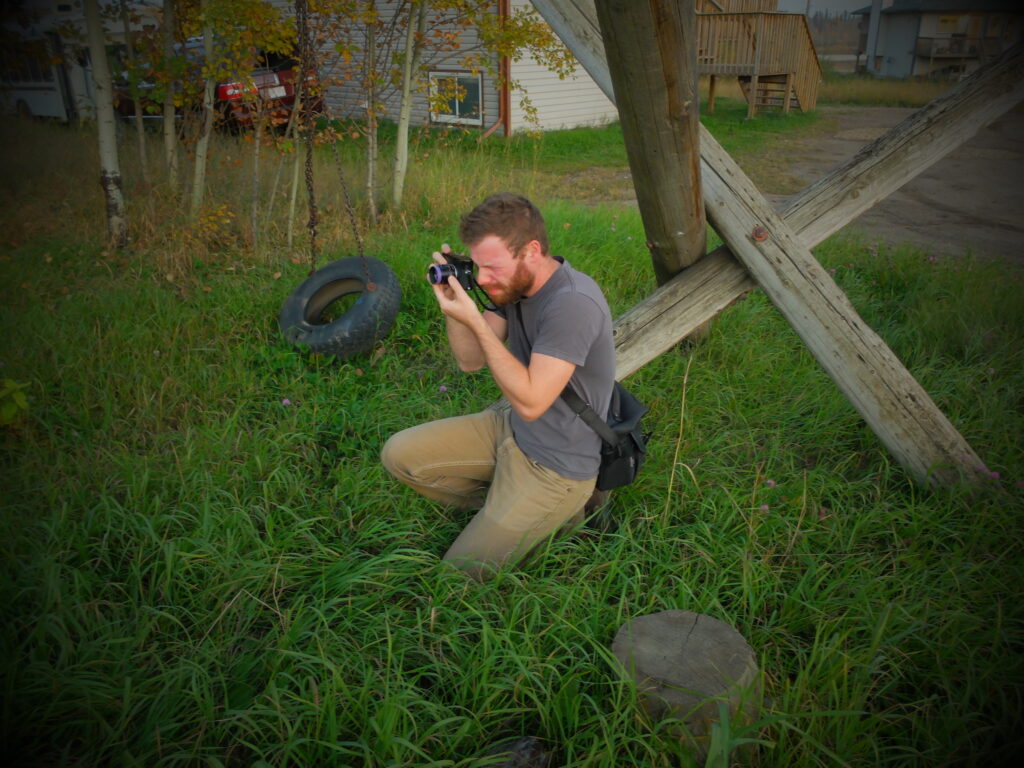
A massive Rockies real-estate project wins another court battle. Opponents will keep fighting it
Residents and nearby First Nations wanted a new environmental impact assessment of the contentious project....
The Narwhal’s visual journalism was recognized with top honours for human rights reporting at the Canadian Association of Journalists 2023 awards gala in Vancouver on Saturday.
Ian Willms’ portrait of a man’s life — and death — in Fort Chipewyan, downstream of Alberta’s oilsands, took home the JHR/CAJ award in a tie alongside CBC’s look at the global refugee crisis.
“I want you to photograph my last breath,” Warren Simpson told Willms in 2019 after being diagnosed with a rare form of cancer he believed was linked to the oil mines.
In his acceptance speech, Willms dedicated the award to Simpson and his family “for trusting me with something so incredibly intimate and painful.”
“It is such an honour to be selected for this award and we are delighted to see Ian’s powerful work recognized in this way,” The Narwhal’s executive editor Carol Linnitt said.
“Ian’s photojournalism is a reminder of the importance of photo storytelling in Canada’s media landscape, especially when bringing stories of human rights violations to light. This kind of work is often difficult and costly and undertaken by freelancers like Ian, who do a great service for all readers across Canada.”
Willms spent years making reporting trips to Fort Chipewyan, a community a government report acknowledged had a “higher than expected” rate of bile duct cancer.
“It was an interesting thing to meet somebody who was Indigenous who had worked in industry, who was very open about it, who was also affected by this cancer — because it made the whole story far more grey,” Willms said this past fall.

“It was really powerful to talk to Warren about the way he felt about working for industry versus seeing the environmental impacts in his community and ultimately contracting a lethal cancer he believed came from oilsands.”
Fort Chipewyan has been in the news recently after it was revealed that an Imperial Oil tailings pond had been leaking toxic chemicals in the region for months as First Nations were left in the dark.
Reflecting on the finished story, Willms thanked editors Sharon J. Riley and Denise Balkissoon as well as the wider Narwhal team “for seeing potential in, and being brave enough to publish, this project in its entirety.”
The Narwhal picked up seven other Canadian Association of Journalists award nominations for work ranging from an investigation into the weakening of methane regulations to Wet’suwet’en coverage to the climate impacts of ice loss.
The Globe and Mail’s Grant Robertson took home the CAJ’s McGillivray Award for best investigative journalism for his reporting on Hockey Canada’s secret funds for sexual assault settlements.
Winners in other categories included the CBC, Radio-Canada, the Toronto Star and The Globe and independent outlets The Tyee, The Discourse, La Presse and Maisonneuve.
Get the inside scoop on The Narwhal’s environment and climate reporting by signing up for our free newsletter. On March 17, federal Conservative Leader Pierre Poilievre...
Continue reading
Residents and nearby First Nations wanted a new environmental impact assessment of the contentious project....

Growing up, Christian Allaire loved spending summers with his cousins in his grandma’s backyard, near...

B.C. previously allowed mineral claims without First Nations consultation. It was court-ordered to fulfill its...
